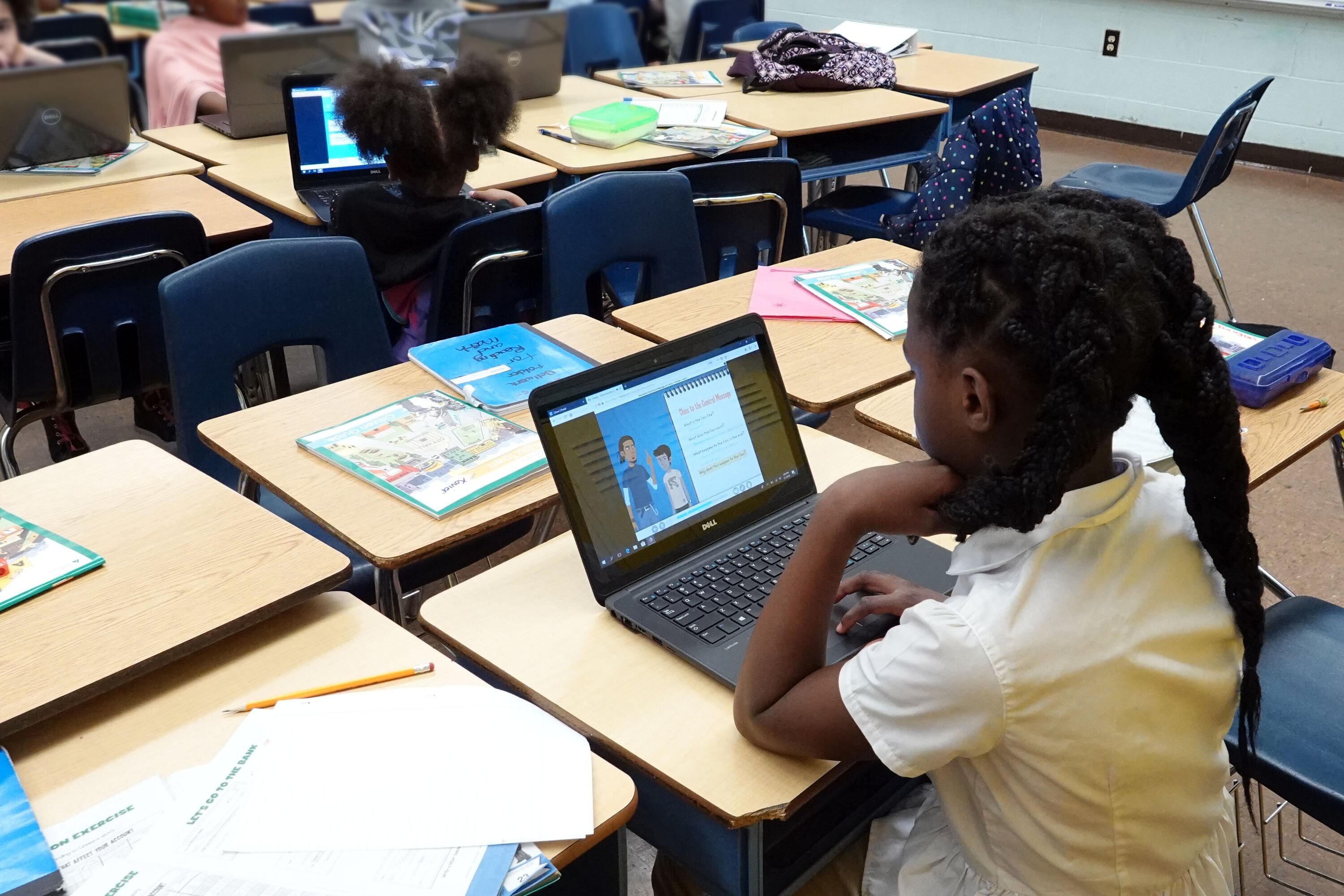Shelby County Schools officials released a plan Monday for how they intend to safely educate students returning to campuses during the pandemic next school year.
The plan addresses every aspect of the school day starting with bus rides and before-school care and ending with after-school care and extracurricular activities. Temperature checks, scheduled hand-washing and sanitizing, and social distancing practices will take place during the day.
School districts statewide and across the country are developing plans for returning to school after months of building closures due to the coronavirus.
“No plan is flawless, but we’re going to do and continue to do what’s best for the students,” Superintendent Joris Ray said during a press conference.
Parents are being told to add face masks to their back-to-school supply list “as it will be the responsibility of the parent to ensure students arrive at school each day with the necessary face mask,” according to the report.
Wearing face masks has been controversial in Tennessee, although a growing number of cities and counties, including Memphis and Nashville, require they be worn in public.
The Memphis plan comes a week after officials directed parents to choose whether to send their children back to classrooms next year or use online learning at home with teachers and students interacting virtually during the day. Elementary school students staying home will require daily support from someone in the home to maintain the school learning schedule.
Parents are asked to commit to an option for the entire first semester so that schools can balance teacher workloads. Parents have until July 18 to decide which option they’ll take.
For those who choose in-person learning, school officials say parents should be prepared for unplanned school closures deemed necessary by health professionals that could range from two to 10 days. That’s when they’ll switch to online learning.
Other changes in the 36-page reentry plan include:
- Face masks will be required for students, staff, and visitors in all buildings and on buses.
- Social distancing will be practiced with as much caution as possible with schools utilizing all available classroom and learning spaces.
- Social distancing signs and floor markings will be displayed prominently throughout all schools and buildings.
- Group gatherings will be discouraged and school visitors will be limited.
- Elementary and middle schools will limit student movement and exposure by assigning a cohort of students to a classroom for the majority of the school day.
- Instead of students traveling from classroom to classroom for special activities or other classes, teachers will rotate.
- Extra furniture will be removed from classrooms to allow for social distancing.
- Classes may convene outside, in the cafeteria, gym or other large areas.
- There will be scheduled hand-washing and hand sanitizer stations in high-traffic areas.
- Classrooms and other areas will be thoroughly cleaned nightly.
- Common areas such as hallways, libraries, and cafeterias will be cleaned at least twice a day.
- Restrooms will be cleaned and disinfected a minimum of four times a day.
- Students cannot linger on campus after school unless involved in an after-school activity.
- All field trips are canceled for the first semester.
- Recess will be scheduled with classroom cohorts, but playground equipment will be inaccessible until further notice.
- Buses will be cleaned and disinfected between routes and at the end of the day.
- Students riding the bus will undergo temperature checks at the school. Because body temperatures may naturally elevate during the summer months at bus stops and on the bus, students found to have an elevated temperature upon first reading will undergo a second reading before being sent to an isolation room.
- Students with temperatures must be picked up from school.
- All students will be provided a digital device with internet supports, starting with students who choose full virtual learning.
The district will not administer or require COVID-19 tests for teachers or students. However, there will be regular temperature checks and sick students and staff will be strongly encouraged to stay at home.
“We know this year will be unlike any we’ve ever experienced, so we ask your patience as we do everything with the best interest of our students and employees in mind,” the plan concludes. “We will make decisions using the best data and direction we have available to us, and we are committed to keep our families, staff, and community informed along the way.”
Ray also has proposed pushing the school start date from Aug. 10 to to Aug. 31, pending approval from the Shelby County Schools board. Officials said the decision was made because the governor extended the state of emergency through Aug. 29 due to rising cases of COVID-19.






